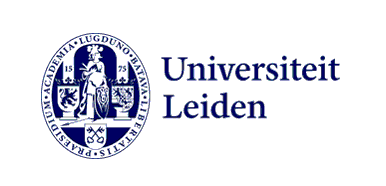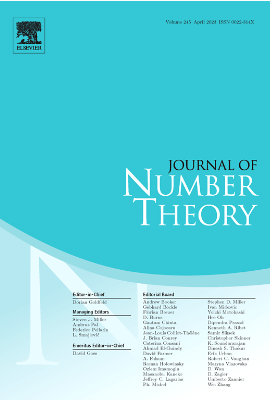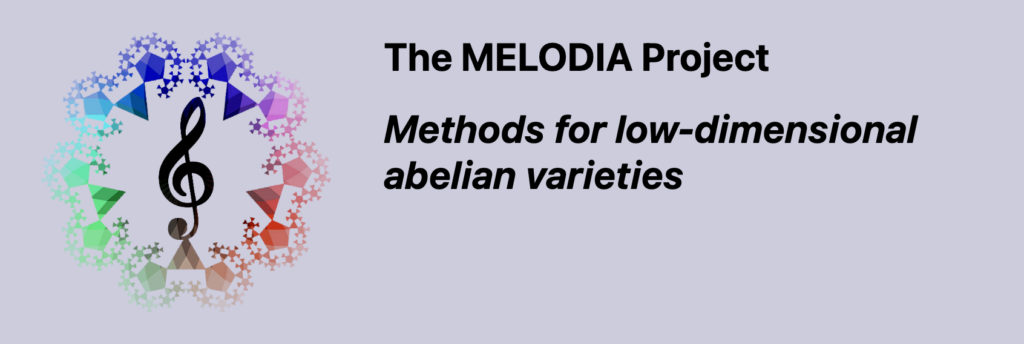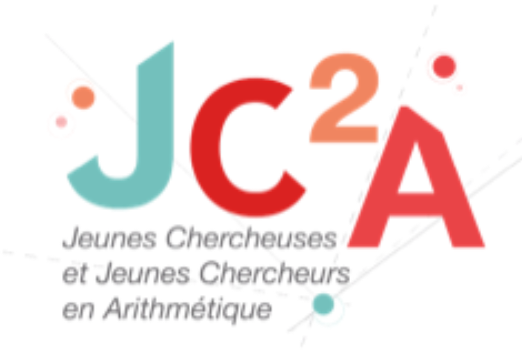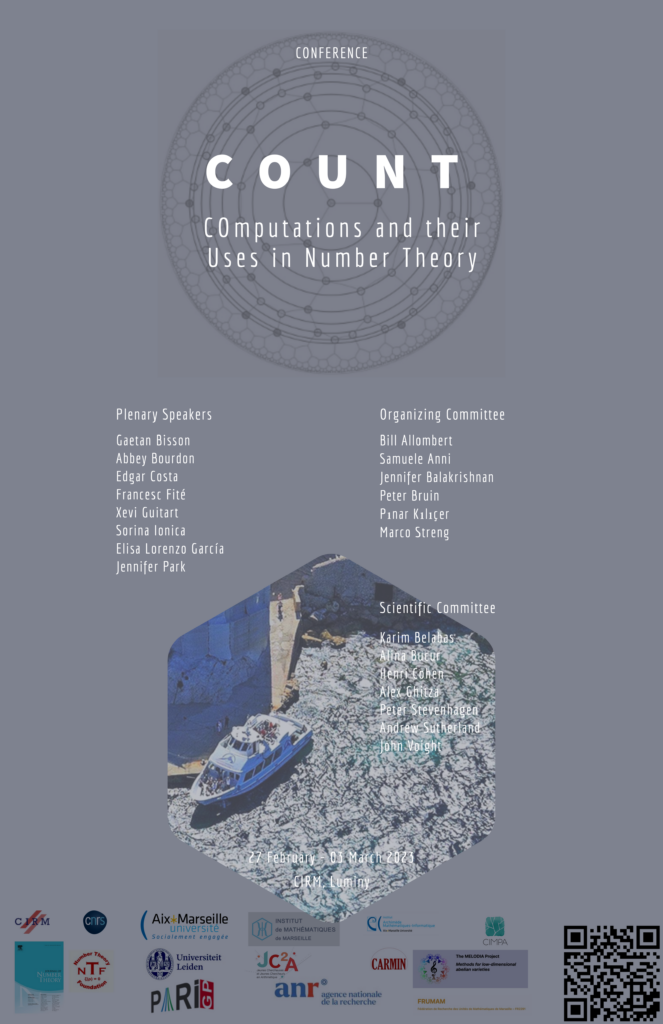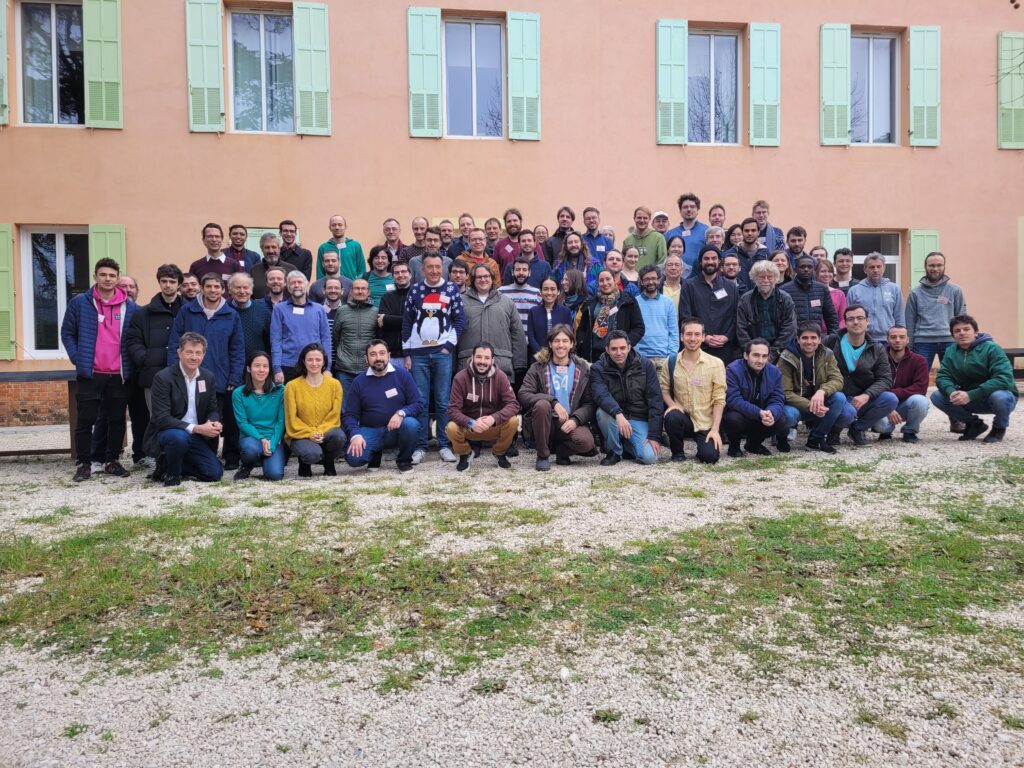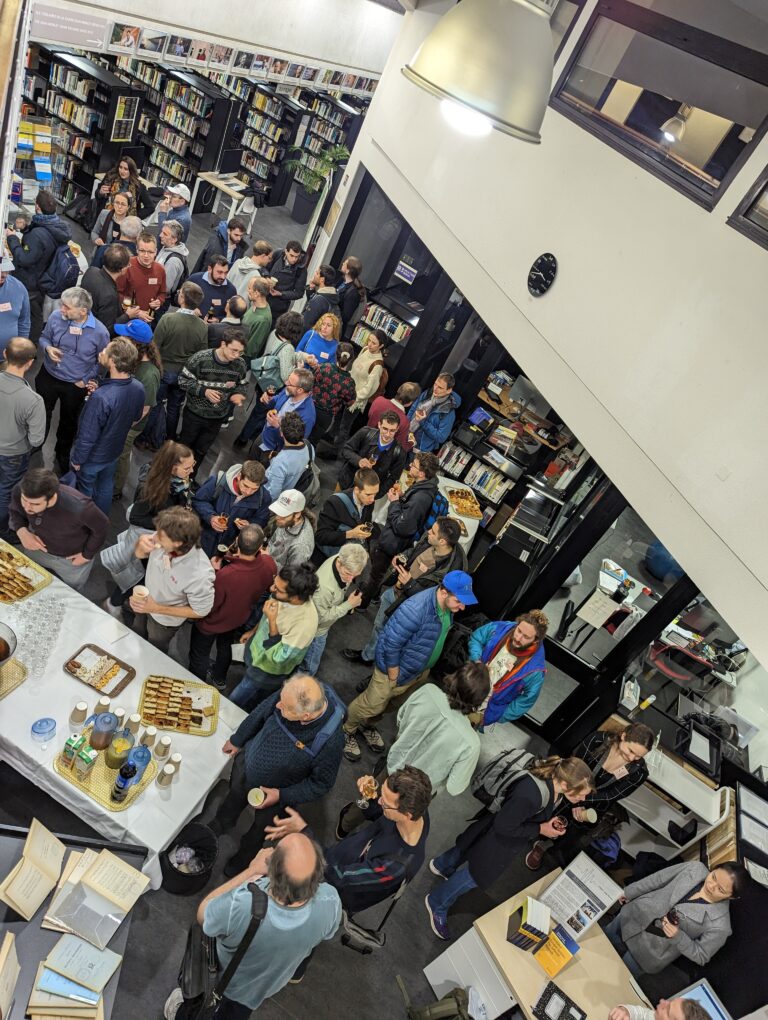CONFERENCE
COUNT, COmputations and their Uses in Number Theory
Les calculs et leurs utilisations en théorie des nombres
COUNT is a shared event between the Chaire Jean-Morlet and the Thematic month programs.
COUNT est un événement partagé entre les programmes de la Chaire Jean-Morlet et le Mois Thématique 2023.
27 February – 03 March 2023
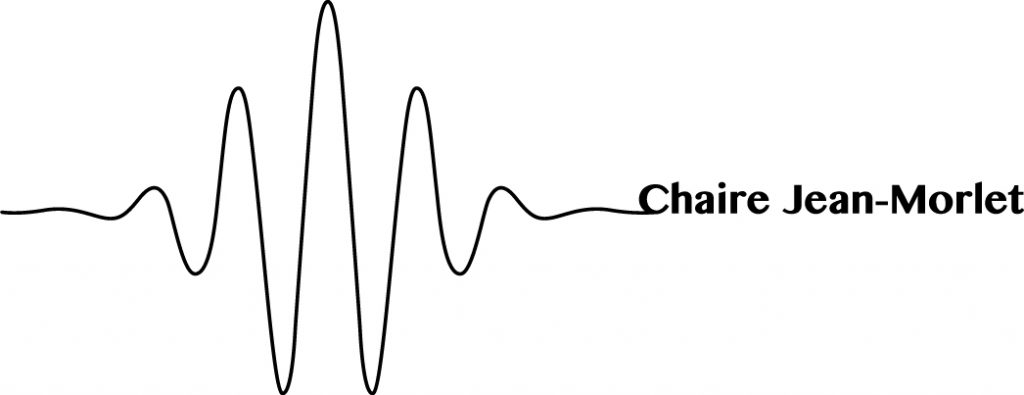
Scientific Committee
Comité scientifique
Karim Belabas (Université de Bordeaux)
Alina Bucur (University of California at San Diego)
Henri Cohen (Université de Bordeaux)
Alex Ghitza (University of Melbourne)
Peter Stevenhagen (Leiden University)
Andrew Sutherland (MIT)
John Voight (Dartmouth College)
Organizing Committee
Comité d’organisation
Bill Allombert (Université de Bordeaux)
Samuele Anni (Aix-Marseille Université)
Jennifer Balakrishnan (Boston University)
Peter Bruin (Leiden University)
Pınar Kılıçer (University of Groningen)
Marco Streng (Leiden University)
The theme of the conference will be explicit and computational methods in number theory and arithmetic geometry in a broad sense. The format will include scientific talks as well as time for informal collaboration and for coding projects related to (for example) PARI/GP, SageMath, Magma, OSCAR or the L-Functions and Modular Forms Database.
On the one hand, various topics where explicit computations have been the key for proving important results will be presented. These will be found in the context of modular forms, the study of rational points, as well as results towards the Birch and Swinnerton-Dyer conjecture.
On the other hand, we will also focus on recently stated conjectures, for example the paramodular conjecture by Brumer and Kramer, and challenge participants to exhibit new examples to support such conjectures (in the case of the paramodular conjecture only one non trivial example is currently known).
We expect that the colloquium will lead to the emergence of new ideas and methods at the interface of these different fields, to new results as well as to new projects and collaborations.
This conference will be organized with the support of the National Research Agency in the framework of the project « MELODIA ».
Le thème de la conférence sont les méthodes explicites et computationnelles en théorie des nombres et en géométrie arithmétique au sens large. Le format comprendra des exposés scientifiques ainsi que du temps pour une collaboration informelle et pour des projets de codage liés à PARI/GP, SageMath, Magma, OSCAR ou la base de données LMFDB.
D’une part, divers sujets où les calculs explicites ont été la clé pour prouver des résultats importants seront présentés. On les trouvera dans le cadre des formes modulaires, de l’étude des points rationnels, ainsi que des résultats vers la conjecture de Birch et Swinnerton-Dyer.
D’autre part, nous nous concentrerons également sur les conjectures récemment énoncées, par exemple la conjecture paramodulaire de Brumer et Kramer, et défierons les participants d’exposer de nouveaux exemples pour soutenir de telles conjectures (dans le cas de la conjecture paramodulaire, un seul exemple non trivial est actuellement connu).
Nous espérons que le colloque conduira à l’émergence de nouvelles idées et méthodes à l’interface de ces différents domaines, à de nouveaux résultats ainsi qu’à de nouveaux projets et collaborations.
Cette conférence sera organisée avec le soutien de l’Agence Nationale de la Recherche dans le cadre du projet « MELODIA ».
PLENARY SPEAKERS
Gaetan Bisson (Université de la Polynésie française) Constructing irreducible polynomials using isogenies
Abbey Bourdon (Wake Forest University) Minimal Torsion Curves in Geometric Isogeny Classes
Edgar Costa (MIT) & Jean Kieffer (Harvard University) Computing isogeny classes of typical principally polarized abelian surfaces over the rationals
Francesc Fité (MIT) Endomorphism algebras of geometrically split genus 2 jacobians over Q
Xavier Guitart (University of Barcelona) Endomorphism algebras of geometrically split abelian surfaces over Q
Sorina Ionica (Université de Picardie Jules Verne) Computing bad reduction for genus 3 curves with complex multiplication
Elisa Lorenzo García (Université de Neuchâtel) On smooth plane models for modular curves of Shimura type
Jennifer Park (Ohio State University) Counting points on weighted projective spaces
CONTRIBUTED TALKS
Sarah Arpin (Leiden University) Orienteering with one endomorphism
Francesco Battistoni (University of Milan) Optimization of polynomials and number fields with small regulator
Alexander Best (King’s College London) Coleman integration on general curves over general fields
François Brunault (ENS Lyon) K4 of modular curves and L-functions of modular forms
John Cremona (University of Warwick) Computing the endomorphism ring of an elliptic curve over a number field
Annamaria Iezzi (University of Naples Federico II) Computing supersingular endomorphism rings using inseparable endomorphisms
Filip Najman (University of Zagreb) Gonality of the modular curve X0(N)
Aurel Page (Université de Bordeaux) Computing groups of Hecke characters
Dmitrii Pasechnik (University of Oxford) Splitting fields of real representations of finite groups
David Roe (MIT) Modular curves and finite groups: building connections via computation
Jeroen Sijsling (Ulm University) Hyperelliptic and non-hyperelliptic curves with identical complex multiplication
Gonzalo Tornaria (University of the Republic) Proving paramodularity of abelian surfaces
Benjamin Wesolowski (CNRS – ENS) Supersingular curves you can trust
Ian Whitehead (Swarthmode College) Apollonian Packings and Generalizations)
SPONSORS

